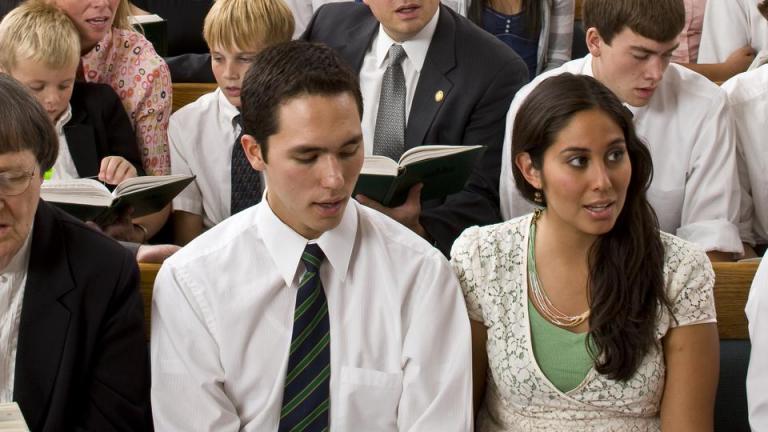
From the Deseret News: “Here’s what the science says about the links between religion and health: Scientists say stress levels, healthy habits and community support could be key to beating the virus”
And, continuing in that spirit, I offer a few more items from Paul McFate, 52 Good Reasons to Go to Church, Besides the Obvious Ones (Chicago: ACTA Publications, 2004). All of them, plus the Deseret News article above, are board-certified as appropriate for inclusion in your Christopher Hitchens Memorial “How Religion Poisons Everything” File:
- Healthier Behaviors for Teens (page 46) — A 1991 survey found that religious behavior was correlated not only with fewer illnesses and less smoking, less drinking, and less drug abuse but with increased use of seat belts by religious adolescents. [W. A. Oleckno and M. J. Blacconiere, “Relationship of Religiosity to Wellness and Other Health-Related Behaviors and Outcomes,” Psychological Reports 68 (1991): 819-826]
- Caring for the Nation’s Poor (page 47) — Religious organizations and the religious people who fund and populate them bear a significant proportion of the American social burden, including the provision of financial assistance and clothing to the poor, shelters, soup kitchens, food pantries, elderly housing, child daycare, tutoring, substance abuse counseling, psychological help for emotional illness and other social problems, and so forth. [D. Roozen and C. Dudley, “Faith Communities Today (FACT),” Hartford Institute for Religion Research (2001)]
- More Affectionate Parents (page 48) — A 2001 review of research showed that conservative Christian parents tend to hug their children more often and to give more positive reinforcement to their children than do parents in general. [J. P. Bartowski, W. B. Wilcox, and C. G. Ellison, “Parenting and Evangelical Families,” Hartford Institute for Religion Research (2001)]
- More Good Samaritans (page 49) — A study from 1976 indicated that religious devotion predicted seventy-five percent of ordinary daily “helping behavior” and that church attendance consistently indicated an increased likelihood of providing emergency assistance. [L. D. Nelson and R. R. Dynes, “The Impact of Devotionalism and Attendance on Ordinary and Emergency Helping Behavior,” Journal for the Scientific Study of Religion 15 (1976): 47-59]
- Less Alcohol Abuse Among Men (page 50) — A number of studies, including one connected with a large random sample of 2,746 men, have shown that churchgoing men are far less likely to abuse alcohol than are non-churchgoing men — which has a large impact on spousal and child abuse, child neglect, broken marriages, driving safety, and innumerable other matters. [D. Calahan, I. H. Cisin, and H. M. Crossley, American Drinking Practices (New York: United Printing Services, 1969); D. Calahan and R. Room, “Problem Drinking Among American Men Aged 21-59,” American Journal of Public Health 62 (1972): 1473-1482]
















